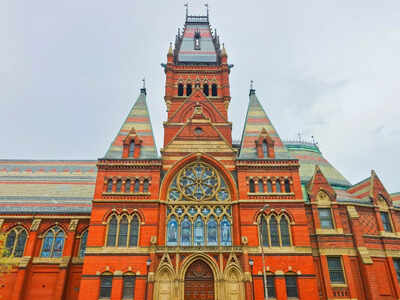The US Department of Commerce has initiated a wide-ranging investigation into Harvard University’s management of patents derived from federally funded research. The inquiry could potentially impact intellectual property assets valued in the hundreds of millions of dollars and marks a significant development in the ongoing dispute between Harvard and the Trump administration.On a Friday, US Commerce Secretary Howard W. Lutnick sent a two-page letter to Harvard President Alan M. Garber, publicly posted on X, announcing an “immediate comprehensive review” of the university’s compliance with the Bayh-Dole Act—a 1980 federal law governing inventions developed with federal research funding. The move comes amid a months-long confrontation between the White House and Harvard over multiple allegations of misconduct.Focus on federal compliance and patent disclosuresAccording to the letter, as reported by The Harvard Crimson, Lutnick accused Harvard of failing to meet key federal obligations under the Bayh-Dole Act. These include timely disclosure of inventions developed with federal support, ensuring substantial US-based manufacturing for licensed technologies, and prioritising public benefit in the commercialisation process.Lutnick has directed the university to submit a detailed list of all patents associated with federal funding by September 5. The requested data includes disclosure dates, current use, and the full licensing terms of each patent. The Commerce Department did not name any specific patents suspected of violating federal laws.“The Department places immense value on the groundbreaking scientific and technological advancements that emerge from the Government’s partnerships with institutions like Harvard,” Lutnick wrote, as quoted by The Harvard Crimson. “However, this privilege carries with it a critical responsibility.”Harvard’s extensive patent and licensing portfolio under scrutinyAs of July 1, 2024, Harvard held over 58,000 patents and maintained more than 900 active technology licences with industry partners, according to the Harvard Office of Technology Development. These agreements play a central role in the university’s collaborations across biotechnology, pharmaceuticals, and medical devices.While Lutnick’s letter focuses on patents developed through government-funded research, The Harvard Crimson notes that the university has also received $300 million in research funding from private companies over the past five years. By comparison, Harvard received $684 million in federal funding in the 2024 fiscal year, although access to such grants has been largely frozen under the Trump administration.Ongoing White House campaign against HarvardThe investigation follows a series of actions by the White House targeting Harvard since April. These include suspending over $2 billion in federal research funding and accusing the university of failing to disclose financial information, colluding with other Ivy League institutions on financial aid, and allegedly training Chinese Communist Party officials.In June, President Trump claimed settlement negotiations were underway between Harvard and the administration. However, The Harvard Crimson reported that Garber dismissed speculation that the university was considering a $500 million payment. Talks remain unresolved.Patent law provisions and possible government actionsUnder the Bayh-Dole Act, federal agencies hold “march-in rights” allowing them to reclaim ownership of federally funded inventions if the patent holder fails to comply with legal obligations. According to The Harvard Crimson, this marks the first instance in which the US government has invoked these powers as leverage in an enforcement action against a university.If Harvard is found noncompliant, the government may seize patent titles or issue third-party licences, significantly affecting the university’s control over its intellectual property assets.TOI Education is on WhatsApp now. Follow us here.






